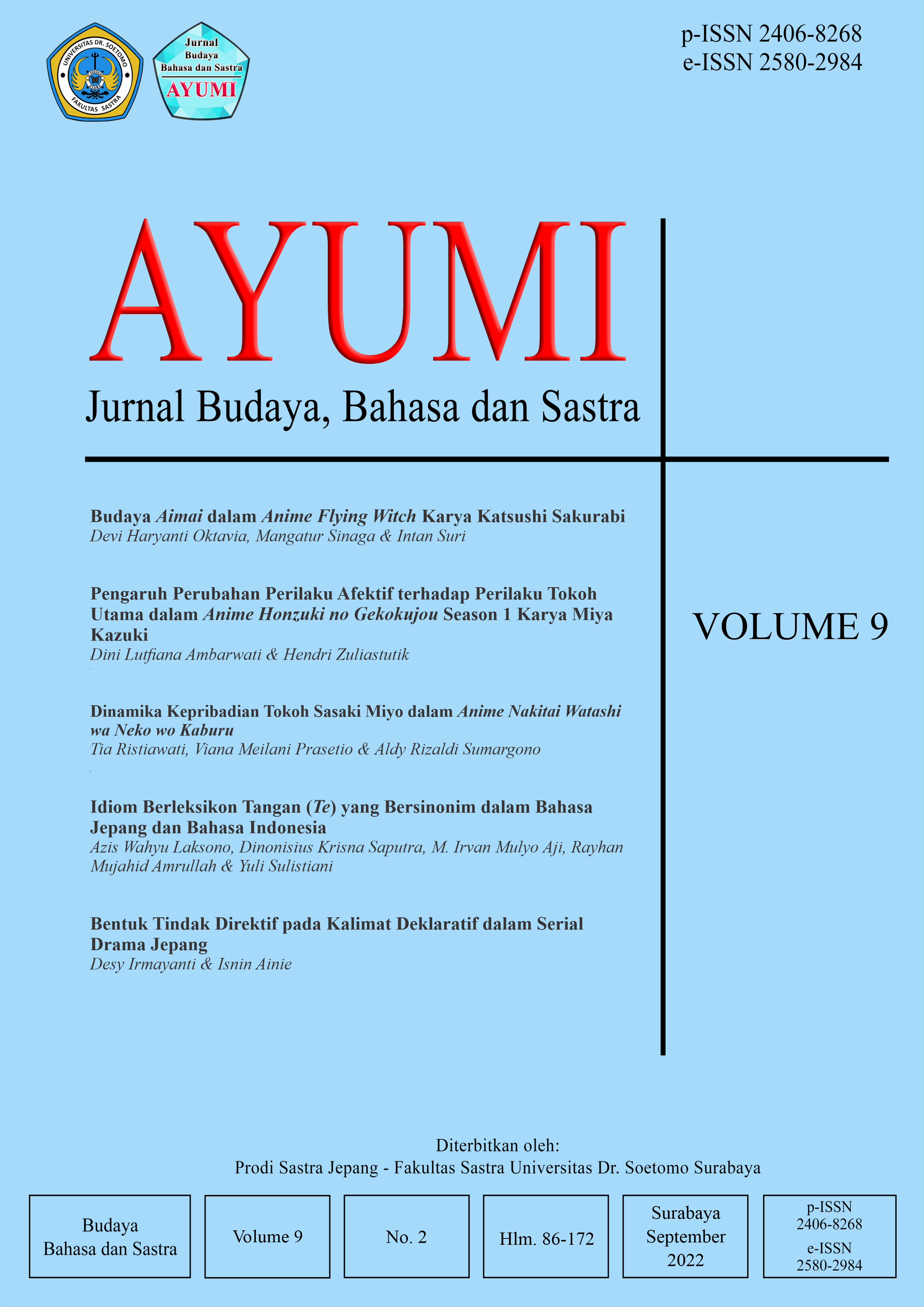Idiom Berleksikon Tangan (Te) yang Bersinonim dalam Bahasa Jepang dan Bahasa Indonesia
 Abstract views: 343
,
Abstract views: 343
,
 PDF 138-153 (Bahasa Indonesia) downloads: 763
PDF 138-153 (Bahasa Indonesia) downloads: 763
Abstract
Idioms are phrases that cannot be interpreted lexically. This is one of the factors causing difficulties for many Japanese learners in interpreting it. Understanding the meaning of the idiom can be done through an analysis. This research is an idiom analysis that uses the lexicon hand or te (手) in the Japanese and Indonesian. The purpose of this study is to comprehend and understand idioms with hand or te lexicon, which are synonymous between Japanese and Indonesian. The benefit of this research is to provide an overview of the reader about the application of contrastive analysis of an idiom with a hand or te in Japanese and Indonesian. The method used was descriptive qualitative. Researchers used literature studies, and data were taken from the Kamus Besar Bahasa Indonesia (2014) and also the online dictionary of Goo Jiten in the collection of data. The results of this study indicate that of 114 hand or te idioms in the Goo Jiten dictionary, there are 14 hand or te idioms that have the same connotation meaning as Indonesian idioms. Furthermore, of the 14 idioms whose connotative meanings are the same, idioms that also have the same lexical meaning are only found in 3 idioms namely, te ga nagai (手が長い) ‘long hand’, te wo ageru (手を上げる) ‘raise hand’, dan te ni wataru (手に渡る) ‘change hand’.
Keywords: connotative; denotative; hand; idiom; meaning.



1.jpg)


















